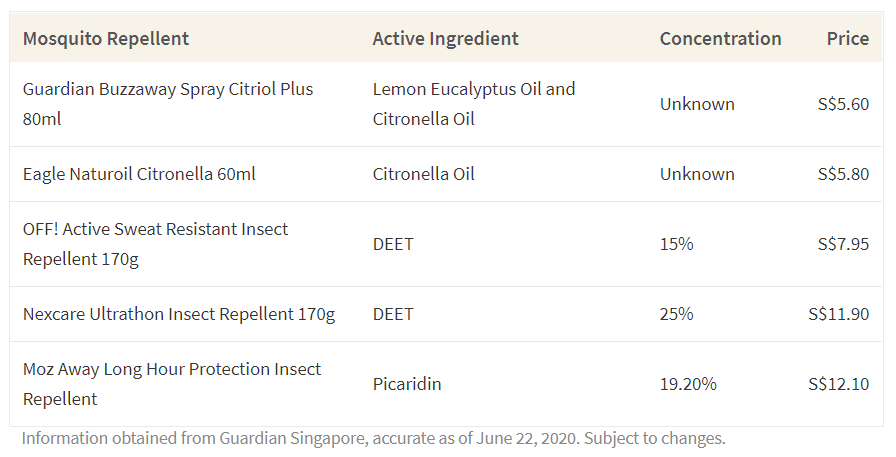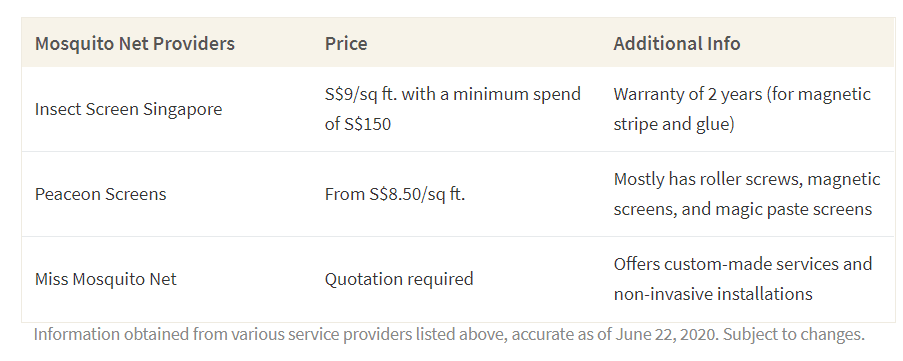3 Affordable Ways to Prevent Dengue Fever Amidst the Rising Infections
A confluence of warm and humid weather, a shift in the dominant dengue strain (dengue virus serotype 3), and the circuit breaker measures where more people stayed at home are thought to have resulted in a worrying spike in dengue cases in recent months. As of June 15th, 2020, , there are 210 active dengue clusters reported. The largest cluster is in Woodleigh, with a total of 207 cases since the identification of the cluster. At least 12 people have died from dengue this year, with the victims aged between 56 and 80. To ensure that you and your loved ones don’t become part of the statistics, here are some tips on the steps you can take for dengue prevention during post-circuit breaker life.
Remove All Stagnant Pools of Water
To guard against dengue fever, the most crucial step involves preventing the Aedes mosquito from even breeding in the first place. The Aedes mosquito prefers to breed in stagnant water (even as small as a 20 cent coin) easily found in residential areas. Thus, what you can do is frequently check and remove stagnant water both in your house and in the vicinity. Some precautionary measures include changing the water in vases and fish tanks weekly, clearing the water in saucers under potted plants and air-conditioner drip trays frequently and capping the bamboo pole holder when not in use.
However, there’s no need to be overly enthusiastic about killing off the Aedes mosquito eggs. Do not pour chlorine into ditches, drainages, canals, and lakes that are near your home as chlorine is harmful to aquatic life. It is also unnecessary as the dengue mosquito does not lay eggs in these places.
Apply Mosquito Repellent, Ideally One Containing DEET Or Picaridin
To avoid attracting unwanted Aedes mosquito advances, you should use mosquito repellent. Mosquito repellent works by masking the chemical cues on your body. When it comes to choosing a mosquito repellent, pick one that contains either 1 of 2 ingredients: DEET or Picaridin. While DEET-based repellents are more commonly found, Picaridin-based repellents are worth keeping an eye out for as Picaridin is less irritating and smelly–a great option if you can't stand the traditional smell of mosquito repellents.

As a general rule, the ingredient's concentration indicates the duration of a repellent's effectiveness. For reference, 6% DEET lasts 2 hours while 20% DEET lasts 6 hours before it needs reapplying. Picaridin 7% lasts 2 hours and is equivalent to using DEET 10%. Other ingredients (citronella, tea tree oil, etc.) are generally less effective at repelling mosquitoes, so use at your own risk if you decide to opt for them. Also, this bears repeating: no matter which ingredient you go with, remember to reapply the mosquito repellent.
Install Mosquito Screens on the Windows and Sleeping Nets
While keeping your home entirely closed-off and air-conditioned 24/7 is a sure way of preventing any dengue mosquito from feasting on you, this is undoubtedly an impractical solution for many. Your next best option–which is more affordable and, thus, suitable if you’re cash-strapped–would be to have mosquito screens installed on your windows. Not only do they keep the Aedes mosquitoes (along with other insects) out, but they also allow for ventilation in the house. If pesky mosquitoes are still finding their way into your home (after all, there will be times you need to open the windows), take extra precaution and install mosquito netting over beds and cribs.

Prevention is Always Key
It’s crucial to remember that there are no vaccines or specific medicine available for dengue. That’s why prevention is key–you need to avoid getting bitten in the first place. You should visit the doctor as soon as possible if you suspect that you've contracted dengue. While rare, a person infected and suffering from dengue fever can infect other mosquitoes. This could then put your loved ones at risk of contracting the disease, too. Lastly, if you would like to be protected from the financial ramifications of contracting dengue, you can purchase an personal accident policy that covers infectious diseases. Personal accident plans are fairly affordable and will provide a cash payout if you were to get sick and hospitalised due to dengue.
